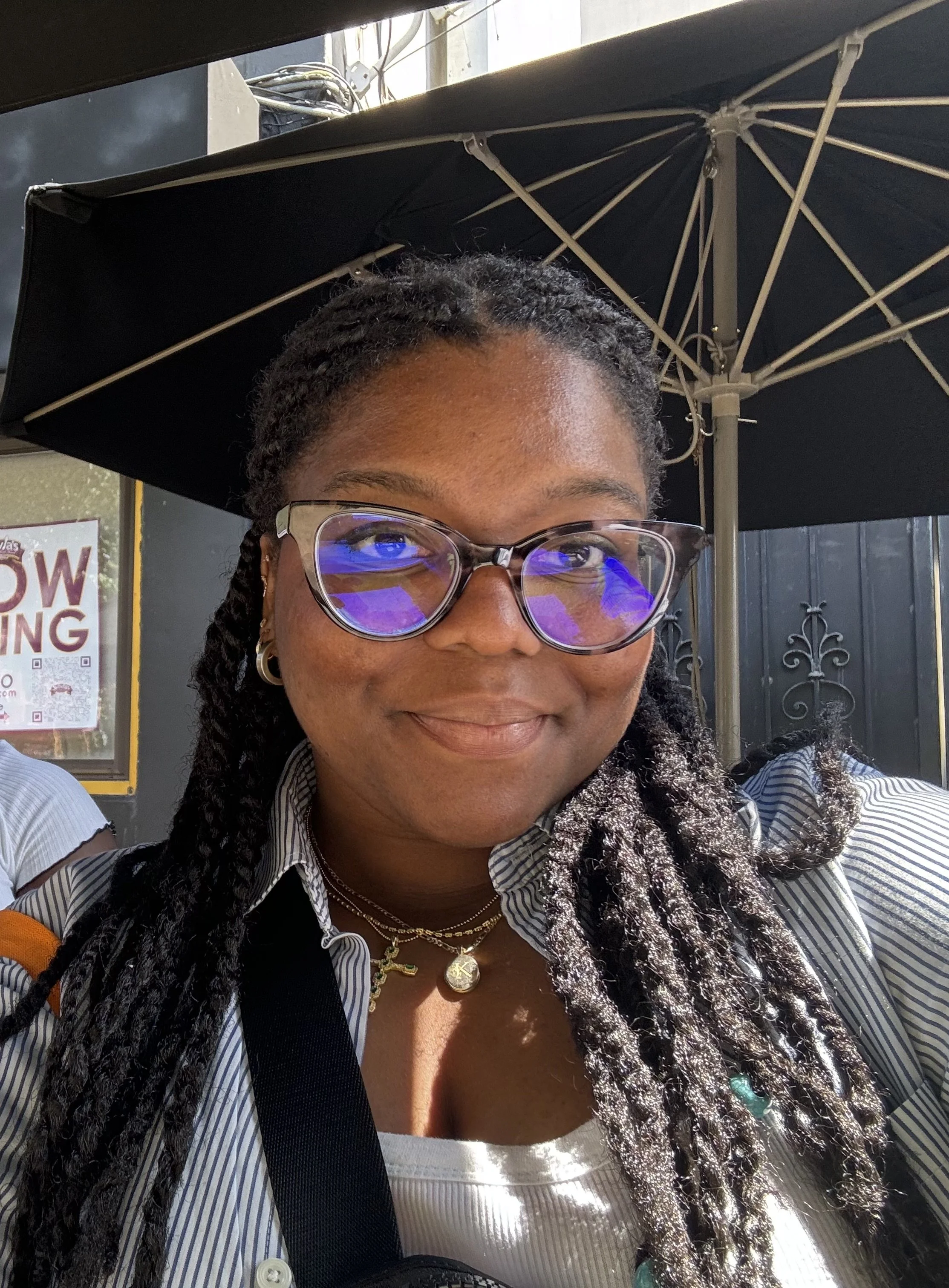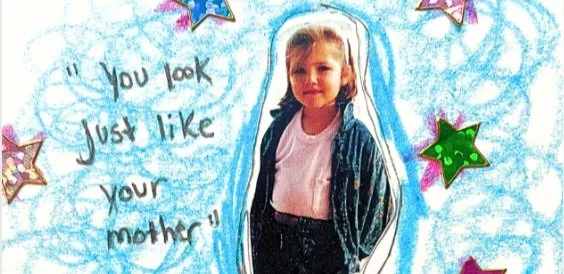
Kennedy is based in Atlanta, GA and loves reading articles, journaling and watching video essays. She spends her time trying out new crafts, collecting jewelry and taking in the beauty of life.
Kennedy Levister
Editor

Dehara explores the deeply personal ways we experience love, guilt, and anxiety, highlighting both our unique differences and our shared need for community.
Kennedy Smith takes a journey through some acts of revenge that she regrets (and some that she doesn’t), bringing in a bit of new scientific research that claims revenge sets off the same pleasure that addiction does.
“A lot of people already take issue with how these posts reinforce patriarchal and gender dynamics putting boys on a pedestal and reducing girls to “the other.” But that’s just the surface. What’s more concerning is the way ‘boy mom’ culture romanticizes sons as replacements for adult emotional connections.”
"My experience navigating being out/public signs of identity in the current political climate, the fears I've had, and where I've ended up on the issue, with consideration for when being open is a vulnerability and when it is a defense."
Daniel G. critiques the shallow and sensationalized portrayal of BDSM and deviant sexuality in mainstream media, calling for more authenticity, nuance, and respect for the subcultures it attempts to depict.
Summer Smith explores how classic Filipino dishes like lumpia, balut, and sinigang connect them to family, culture, and key moments in their life.
In this ode to Joann Fabrics, Kennedy Smith reflects on the role it played in her creative journey - from childhood sewing projects to solo Pinterest-fueled runs. As the store shuts down for good, she captures the quiet heartbreak of losing a space that felt like a safe haven for crafters and offline creativity.
Loviisa Pasternak and Colleen Cambridge talk writing routines, the instinctual art of mystery plotting, and navigating the evolving landscape of publishing in this insightful follow-up interview following the release of “A Fashionably French Murder.” Cambridge shares her no-outline approach, her three-month drafting rhythm (powered by Scrivener and a treadmill desk), and how becoming a hybrid author helped her rebuild a career disrupted by industry shifts.
Written by Alexandria Mitchell-Pressman, this piece explores how joy, rest, and sensuality are being reclaimed as radical, necessary acts—especially by Black and Queer women. Through intimate stories and powerful reflections, it challenges the myth that pleasure must be earned and offers a vision of softness as strength.
Cristina Afonso’s piece gently explores the feelings of nostalgia and change that come with moving away from home. Through small, familiar moments—like late-night chats in a McDonald’s parking lot—she reflects on how leaving can shape who we become.
Kennedy Smith unpacks the rising disillusionment with dating apps among Millennials and Gen Z. Drawing from personal experience, survey data, and expert commentary, she explores the emotional toll of digital dating, the erosion of real-life social spaces, and the loneliness exacerbated by a lack of accessible Third Places.
A tender meditation on queerness, solitude, and self-love by Stacia Laroche.
In their deeply personal and powerfully reflective essay, Summer Smith explores their journey of self-diagnosing as autistic, recounting formative experiences of social isolation, sensory sensitivity, and the exhausting need to mask in neurotypical spaces.
This essay by Zaiya Osach explores how emotional labor, gendered expectations, and a suspiciously crusty peanut butter spoon led her to question the feasibility of heterosexual relationships—and ultimately find clarity in queerness.
Forest Knight reflects on their time working at a nature camp in rural Ohio, where they discovered both the beauty and challenges of outdoor education in a deeply flawed, sexist, and toxic work environment. Despite the personal and professional toll it took, they learned invaluable lessons about leadership, advocacy, and the importance of creating workspaces that support rather than drain you.
A personal essay about what winter has meant to our contributor, Summer Smith, up until recently, what the coming of spring means, and letting the cool in-between be a soothing transition.
This literary journalistic piece by Maggie Herrera delves into the first-hand account of a local queer bar and drag show venue based in Savannah, Georgia in the midst of drag show bans being announced across the United States in the Spring of 2023.
Cristina Afonso reflects on the deeply intricate and universal nature of mother-daughter relationships through the lens of powerful films and literature. Inspired by Greta Gerwig’s Lady Bird, it explores themes of identity, independence, and the tension between love and resentment.
How I Want to Die but I Want to Eat Tteokbokki Unveiled the Hidden Fears of the Average Twenty-Something
A think piece on the impacts ableism has on mental and therefore physical health (both in America and worldwide) today– including BIPOC and/or LGBTQIA+ disabled people’s thoughts and experiences, an ongoing pandemic, the forgotten disabled people in natural disasters, the challenges of Section 504 and DEI and what they mean, and inclusive resources.
A short story about a woman in her 50s who finds a box of unsent letters she wrote to herself in her 20s, filled with passion, longing, and artistic dreams she never pursued.
When I go to the club, I embrace the girlhood I am met with. I am not a woman, but I was raised one. I am not a woman, but I was a girl once. I know the girl codes of conduct and I know the club bathroom rules.
Embarrassment felt a lot like overexposure. Like one of those dreams where you realize midway through your presentation you aren’t wearing pants and everyone is laughing at you. Only I wasn’t dreaming and thankfully I had my pants on. I was in the Publix parking lot and my dad’s hand was stretched out to me. He wanted me to hold it. I wanted to disappear. I hated the stares we would get by holding hands. My small black hand in his large white one.
For many, the Oscars are a night to celebrate cinema and those responsible for keeping it alive. However, one of the most essential roles of the Oscars is the opportunity to open doors and raise voices that are regularly overlooked. This is not simply an attribute of the Academy, but a responsibility they carry. It's why, time and time again, people raise their complaints when this potential goes unfulfilled—one clear example being the #OscarsSoWhite campaign back in 2016, a direct response to the all-white ensemble of nominees that year.
























